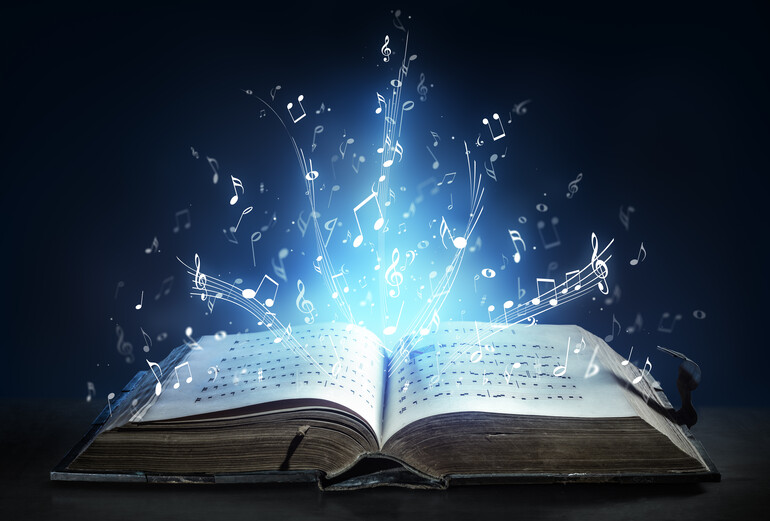One of God’s many brilliant and gracious gifts to mankind is the gift of music. In fact, we were wired from birth to respond to it and to enjoy it.
Scientists aren’t clear about its function. Why do we like certain chord progressions (at least, in the west) like C, F and G? Why does adding an Eb chord sound so wrong to everybody? And why do minor chords sound sad? It seems that God designed a response mechanism in our brains that is devoted to music.
In the Bible, Cain’s descendant, Jubal was the “father of all those who play the harp and flute” (Gen. 4:21). Songs were often composed as a reaction to an event. Moses’ song of victory over the Egyptians is an example. Mary and others wrote songs as a response to the birth of Christ. Worship and praise (including musical praise) typically follows times when God's work is seen.
But if we are going to talk music in the Bible, we have to talk about David. He was the first prominent character that would qualify as a professional musician — singing and playing for royalty. He wrote many of the Psalms, of course. And that leads me to a serious question. Lately, I have been reading through the Psalms as part of my morning worships. Have you ever noticed how frequently David expresses his emotions in his music? In fact, there isn’t much in his music that isn’t emotional! And what emotions are most commonly expressed in his song? “Lord, will you please punish my enemies!”
David was God’s man. He sinned hard, but he repented even harder. And not unlike many musicians today, he wore his feelings “on his sleeve.” He was tired of battles with enemies and tired of fighting with his friends. He looked to God for answers and for justice. I have wondered how these sentiments jibe with Jesus’ call to “pray for our enemies.” David’s psalms express much pain.
Music enters our brains and reacts with “feelings.” Our early and late encounters with music frame our most comfortable styles. We often tend to identify with those favored styles, so much so, that when others dislike our music we can take offense. Musicians are especially wired this way. As a pastor, I can remember many times our church’s musicians would take issues about their musical styles as personal affronts. We just aren’t able to think about music objectively.
You remember the evolution of musical trends in the Adventist Church over the years. Attempts at bringing more contemporary styles were rebuffed by some. There was even a fear that some kinds of music would lead people to corruption because they felt it was too loud and fast. Guitars and drums were suspect. I find it interesting that guitars (or lyres) and percussion were central in the music of the sanctuary. Still, in the 1970s, the church’s intolerance of the music I liked hastened my departure.
Again, we aren’t able to think of music objectively because it’s wired to our emotions. Any serious discussions will often lead to more heat than light. The danger is that intolerance of some kinds of music will always lead to division. And we already have too much of that.
Music has power. It can carry use to places far away. The “rock music” of the past centuries were the symphonies and concertos composed for the masses. I challenge anyone to listen to a concerto by Rachmaninoff or Tchaikovsky and not feel the music’s power. Lucifer, as heaven’s choirmaster, certainly knows its power. I have regularly thought Satan has intentionally worked to debase certain styles or genres of music because of their potential use for good.
Let’s close with some thoughts about our musician, David. What led him to compose Psalms 22? It begins, "My God, my God, why have you forsaken me? Why are you so far from saving me, so far from my cries of anguish (Ps. 22:1, NIV)?" What event in his life would lead him to express the fear that God had forsaken him? And what music went with this spoken anguish? As meaningful as David’s music has been to us, it was even more meaningful to our Savior who thought of this song while dying for us on the cross. He must have thought of the tune, too, because who can think of “a mighty fortress is our God” without humming the music in our mind? Did Jesus hum or sing it as He felt the anguish of separation from the Father? Was it written with minor chords?
David’s psalm beautifully articulated the emotions of Jesus at that critical time in His life. Music has the power to do that.









